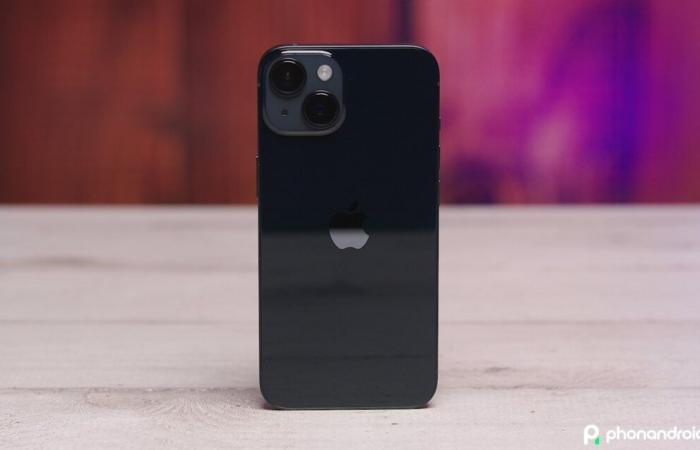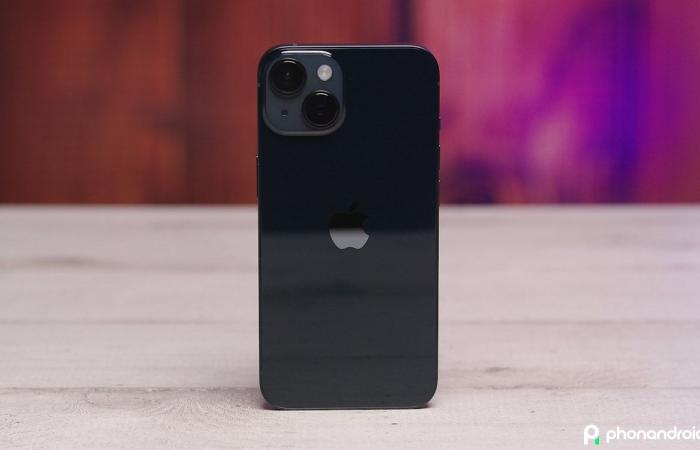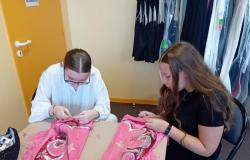Any iPhone models that do not have a USB-C port will no longer be able to be sold in the EU unless they are already imported there. A headache looms for platforms selling refurbished smartphones.
From December 28, 2024, many electronic devices sold in the EU, including smartphones, must have a USB-C charging port. In the phone market, only Apple iPhones are affected, all the others having already switched to this connection a long time ago.
The only models still officially sold by Apple and equipped with a Lightning port are those of the iPhone 14 series and the iPhone SE 3. However, they are not going to disappear overnight: Apple, operators and resellers have the authorization to sell their stocks after the fateful date.
European consumption patterns are not favorable to reconditioned products
“A distributor will be able to resell a device not equipped with the USB-C port after December 28, 2024 if he himself acquired it before this date or if he proves that it was imported into the territory of the EU before this date”explains the ANFR (National Frequency Agency), questioned by Tech&Co. It is therefore possible that the latest iPhone 14 and iPhone SE 3 will continue to be marketed in 2025.
One of the sectors which is likely to be most affected by this measure is ultimately that of reconditioned goods. For refurbished players, the same rules apply as for new: it is possible to sell iPhones without a USB-C port, but only if they entered Europe before December 28, 2024.
This could pose problems, because the French and Europeans tend to keep their smartphones for a long time, which prevents distributors of refurbished devices from sourcing locally. Many sellers of reconditioned products pass by China or the United Stateswhere the frequency of smartphone renewal is higher, to build up a stock of used smartphones. This will therefore no longer be possible for iPhone SE 3, iPhone 14 and earlier models.
“The criterion is too restrictive, we will dry up the reconditioned market. If these products can no longer be marketed, it is counterproductive for purchasing power and for the planet”regrets Eric Bothorel, deputy of the Ensemble pour la République group in Côtes-d'Armor (5th constituency), cited by Tech&Co. We know, for example, that Back Market, one of the most popular reconditioned platforms, works with partners sourcing largely from outside the EU.
Will the regulations be respected?
As refurbished sellers can no longer source these models outside the EU, they will certainly have to fall back on more recent iPhones to compensate and continue to offer an offer to their customers. Obviously, these devices will be more expensivewhile many users have no problem acquiring iPhones that are several years old. Especially since Apple offers long-term software support with regular updates, giving its devices a long lifespan. The performance of the chips also contributes to this, while the screen or battery can be replaced in the event of degradation.
One solution would be to encourage European users to resell their devices once they have acquired a new one. But often, smartphones are used to an advanced state of deterioration, and it can be difficult, or not economically viable, to repair them. There is of course no question of encouraging consumers to change their smartphone more frequently to supply the refurbished market, since this would go against the ecological objectives advocated by the EU.
An executive from the reconditioned industry contacted by Tech&Co However, he is not too worried about the impact of the new regulations on the sector. According to him, resellers cannot really be caught red-handed and sanctioned if an iPhone without USB-C and imported after December 28, 2024 is sold within the EU. In France, it is the ANFR which will be responsible for monitoring whether the law is properly applied. She has not yet communicated how she plans to go about it. Suspicious iPhones should be ordered from resellers, then required to prove that the devices had a first life within the EU, to put them at risk.
Source : Tech&Co







